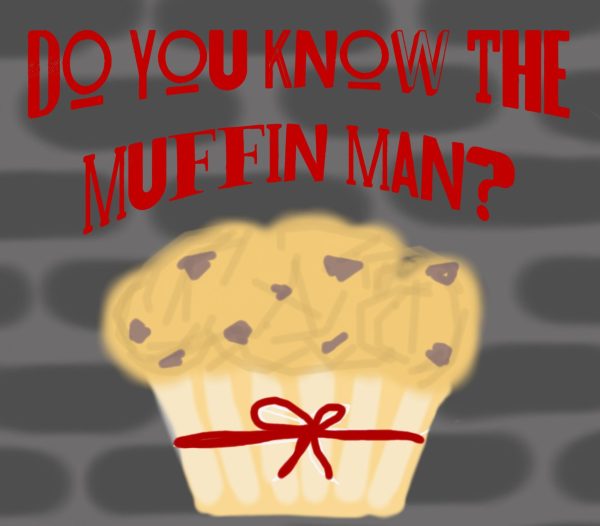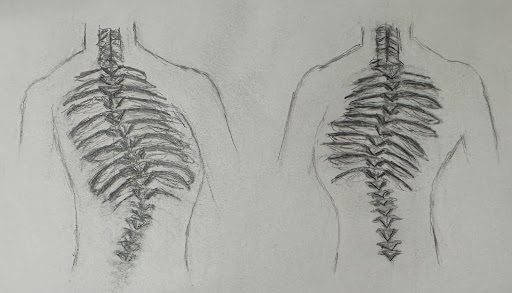Stereotypes that students face

Photo By Lillie Bobé
Students use insults derived from stereotypes. Stereotypes can be used to justify harmful and rude ideas.
Stereotypes are inescapable. They can be observed in various forms of media like movies and books as well as in everyday life. Many people who are involved in things like sports or clubs are heavily stereotyped by others. Stereotypes can have an everlasting effect on people regardless of whether they are positive or negative.
Stereotypes are defined as general ideas of a particular group of people in society. They allow people to assume and judge without solid reasoning. Typically, they are used as a way to negatively stigmatize people. Junior Kaci Randall has a negative viewpoint on stereotypes.
“Stereotypes put people in boxes that can be hard to escape,” Randall said.
Stereotypes can give people a reason to act a certain way toward a certain group or thing. Many people like to hold on to these reasons as a way to justify or give evidence as to why they treat certain groups of people differently than others.
Stereotypes and assumptions can be observed in the athletic world, too. Many can stem from films and media, like how cheerleaders and football players are always portrayed to be in relationships with each other. Another popular example is the idea that some athletes’ personalities are only based on what sport they play. Senior Juliana Gonzalez has observed stereotypes that revolve around sports, and she has a strong opinion on the matter.
“Cheer and football have all the egotistical toxic people, although I wouldn’t necessarily call that a stereotype. They just happen to be self-centered and rude and [play] a popular sport,” Gonzalez said.
Some stereotypes are so commonly believed that they are accepted as facts by the general population, even if they are simply assumptions, such as ones surrounding students enrolled in band classes. The Kaneland High School Marching Knights are aware of the number of stereotypes about them. Junior Drum Major Megan Fountain stated her views on the topic.
“I’ve heard many different things about [the marching band], some that even contradict themselves. One is that we’re nerds, sometimes not just band nerds but just smart [in general],” Fountain said. “Conversely, people seem to sometimes think we aren’t the smartest and that we lack common sense. [Another] very popular one is that we’re socially awkward and can only interact with other band members.”
Although stereotypes have many negatives, there are some positive aspects to them. Some of them are considered as good and could potentially favor a particular group, even if the assumption is not entirely accurate. An example would be how students who take advanced writing classes must be good at writing, which is not always the case. They may have taken the classes to further expand their skills, and they may not be very good at writing at all. These types of stereotypes or assumptions are not insults, but they are not necessarily applicable to everyone or every situation.
“I feel like stereotypes can be good when they’re funny, and we certainly have those within the band. They’re all internal, relating to [things like] instruments and grade levels. It’s something to laugh about, especially when someone ends up playing into the stereotype, and there’s nothing wrong with some good fun,” Fountain said. “That being said, if anyone uses stereotypes to [form] negative opinions about people before even meeting them, then they need to stop.”
Stereotypes can prevent people from making their own decisions or wanting to expand their knowledge of unknown topics, resulting in them not being able to be a part of specific events or activities due to the stigma surrounding them.
“When I hear the word stereotype, I [think it] automatically means something bad because so many of them are linked to bad things,” Gonzales said.
With both positive and negative stereotypes having an impact on society, it is inevitable that they may lead to pressure to conform or a feeling of being trapped by norms. Stereotypes can cause people to feel self-conscious about who they are or what they are interested in. Even with the prevalence of stereotypes in our everyday lives, we can make an effort to judge people based on their personalities and values rather than generalized assumptions.

Name: Lillie Bobé
Position: Photos Editor
Graduation Year: 2024
A Few Sentences About Me: I spend the majority...







![When I chose to take a tour of the Old Joliet Prison in Joliet, IL, I had no idea what I was walking into. I’ve heard of multiple paranormal events happening here, but I was more interested in how a prisoner lived. I wanted to feel their hopelessness and wanted to understand what it must have been like to sit in an empty cell and yearn for sunlight.
The Old Joliet Prison is a daunting structure that appears, seemingly, out of nowhere. When driving to the prison, it isn’t until someone is a few feet away that they see the large walls and barbed wire. Just driving past it, they can feel a change in the atmosphere.
When a prisoner is being driven there, they don’t know how close they are. They are driving through a suburban neighborhood before they reach a small unassuming bridge. Yet, as soon as they go under the bridge and back into the sunlight, they finally see the prison and know that as soon as they go in, they will never come out.
“In 1878, the Prison was filled well over capacity with nearly 2,000 inmates,” according to jolietprison.org, a website that tells the history of the prison and allows for you to sign up for tours. “[There were] reports of unsanitary and dangerous conditions emerged.”
Throughout the state, people knew the allegations that staff was abusing the prisoners as well as killing them. Once a prisoner was told that they were going to Old Joliet Prison, they knew that it was a death sentence](https://kanelandkrier.com/wp-content/uploads/2024/07/prison1.jpg)



